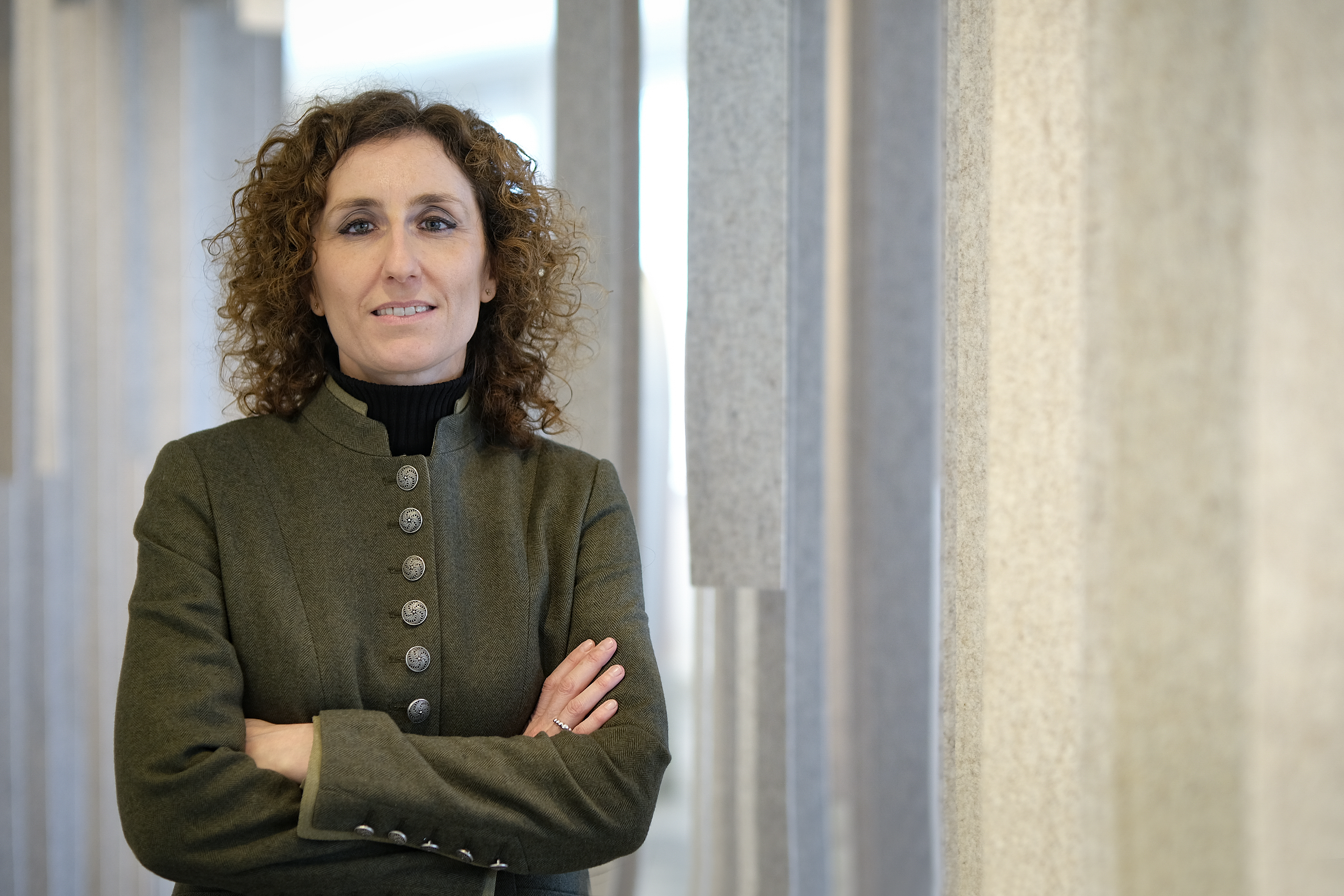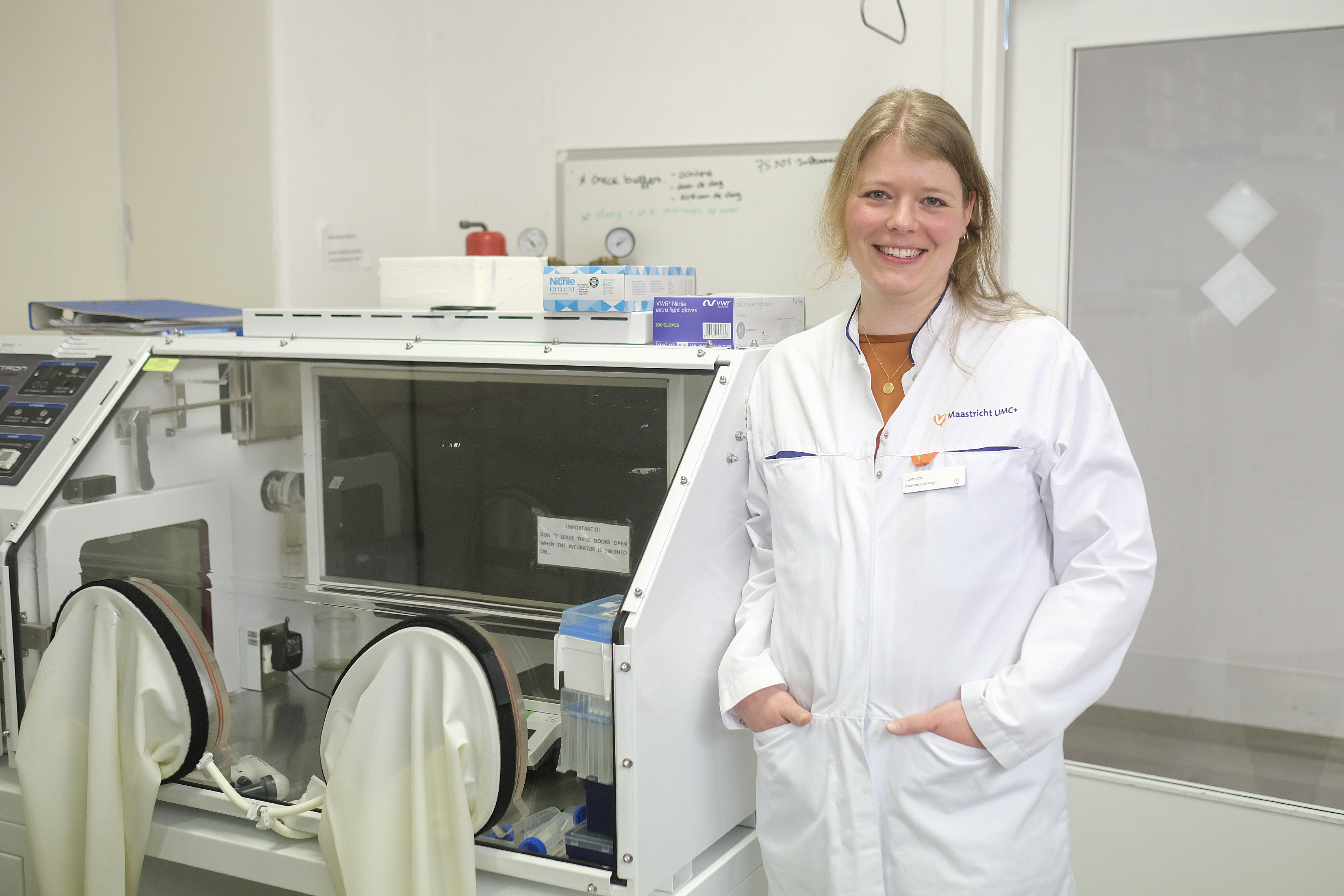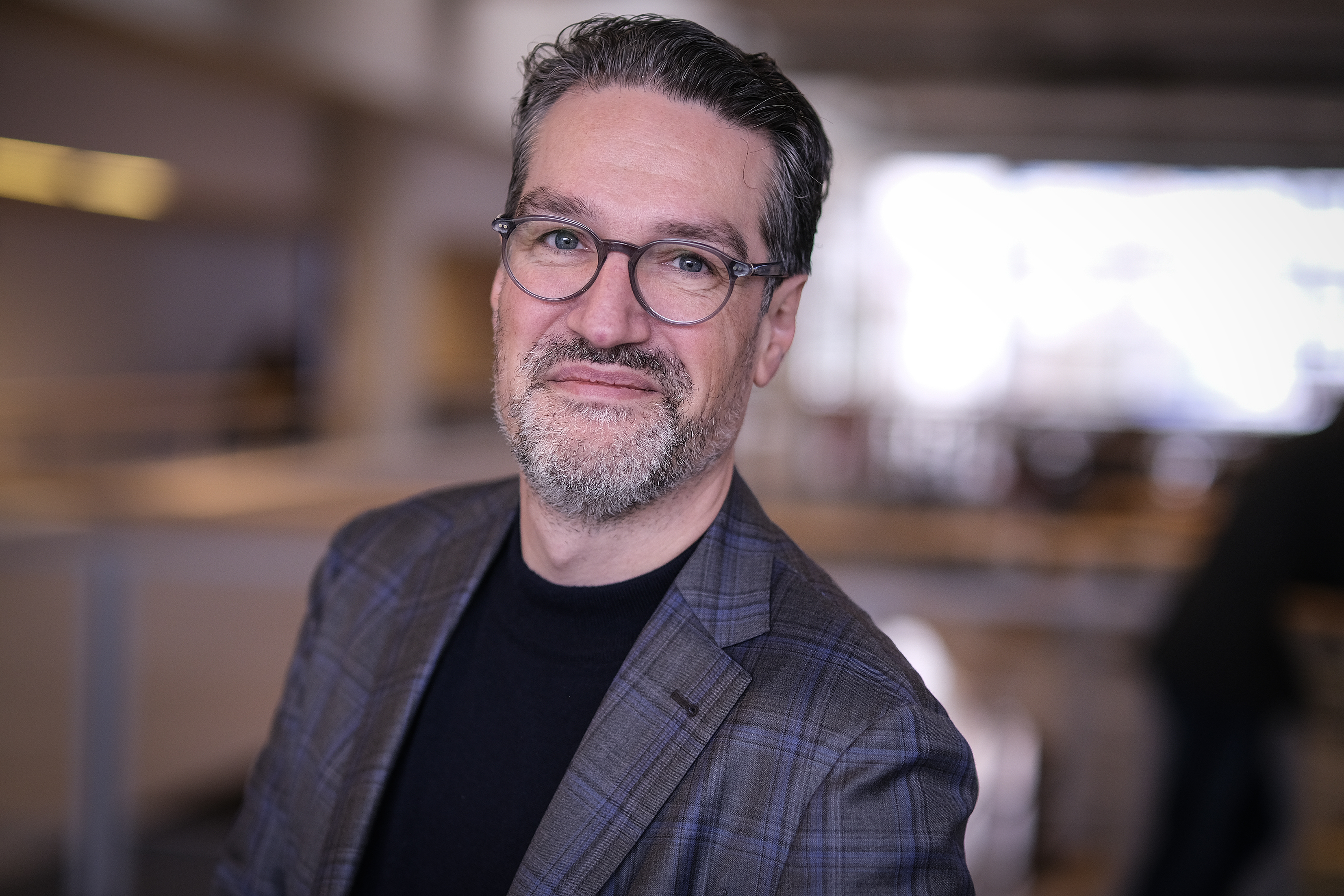No quick fix for the GP shortage
Nearly a third of general practitioners in the Netherlands are set to retire within six years. This will exacerbate the existing shortage of GPs, at a time when more than ever are being trained. Where are we going wrong? Matthijs Limpens, head of the GP training programme in Maastricht, and trainee GP Moniek Wouda share their experiences, concerns and—spoiler alert—confidence that the tide will turn.
“Let me be clear: the shortage of GPs is not a GP problem,” says Matthijs Limpens at the start of the interview. “The problem is much bigger than that.” Let's first consider the numbers. Around the Netherlands, GPs are being trained in increasing numbers: 620 in 2010, 850 this year. “In Maastricht and Eindhoven together, 96 trainees now enrol annually in a three-year programme ‘for and by’ the region. By using our regional network we’re able to contribute to the continuity of GP care in Limburg and Southeast Brabant.” One of those future GPs is Moniek Wouda, now in her third year of training. She has first-hand experience of the shortages. “When my trainers are on holiday it’s hard to arrange replacements, even in a region where the shortage of GPs isn’t that bad.”
Research commissioned in 2018 by the National Association of General Practitioners and the Ministry of Health, Welfare and Sport shows that next year 22 regions around the country will face a shortage of GP care, despite the growth in the number of trainees. According to Limpens, one reason is that the new generation of GPs want to work 40 hours a week instead of the usual 60 to 80 hours of their predecessors. And these young doctors are less likely to opt for their own practice; particularly at the start of their careers, they prefer to work as observers on a freelance basis. But this, Limpens says, is not the heart of the problem.
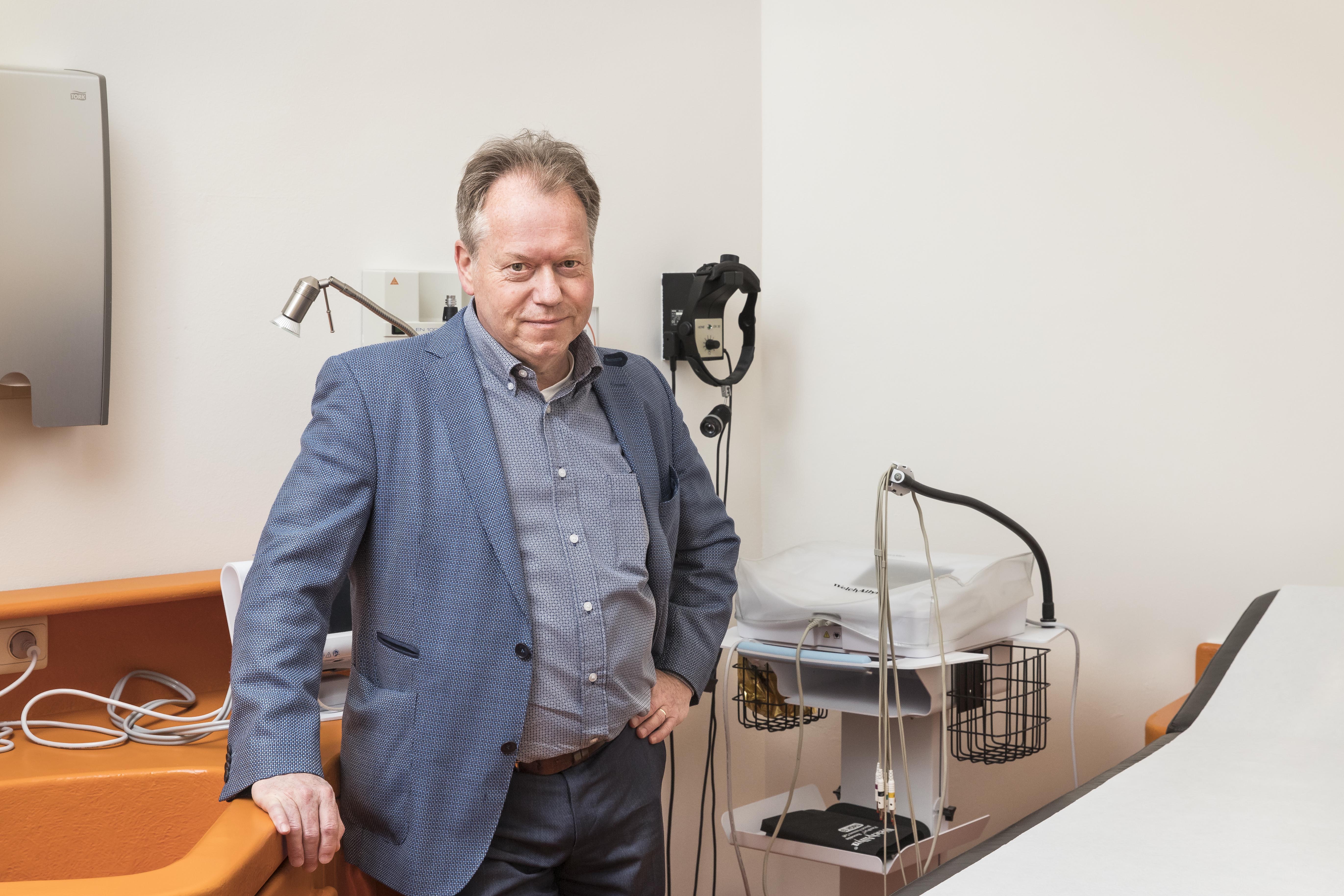
Matthijs Limpens (1963) studied medicine in Nijmegen and trained as a GP in Utrecht. He ran a GP practice in Hoensbroek for 25 years. He also worked as a GP trainer and lecturer in the GP training programme in Maastricht. He is the co-founder of the regional GP organisation in eastern South Limburg. He has been head of UM’s GP training programme since 2019.
Falling through the cracks
The issue is that GPs are footing the bill for the cutbacks in mental healthcare, youth care and social services. “Patients who are on a waiting list and have nowhere else to go turn to their GP, who ends up just papering over the cracks,” Wouda says. Limpens: “There are differences between municipalities, but on the whole the entire social domain—social work, social services and the government itself—has become more complicated and difficult to approach for patients.” The GP, on the other hand, is approachable—and so the duties pile up.
The lack of beds in healthcare inevitably leads to distressing situations that GPs can do nothing to prevent. “One elderly lady at our practice should have been in a psychiatric institution, but there was no place for her,” Wouda says. “We found her at home in her own faeces. You have to wait for things to get that bad and then it becomes a crisis admission.” While caring for patients—the aspect of the job that every doctor finds fulfilling, Limpens says—is becoming more difficult, there is also a significant increase in administrative work. “The regulatory pressure from the government and health insurers leads to frustration. When you’re already run off your feet doing your core duties, you can’t deal with that as well.” The capacity might be sufficient, he says, without the extra burden imposed by policy decisions. “The training programme has grown in recent years, but without policy changes, you’re fighting a losing battle.”
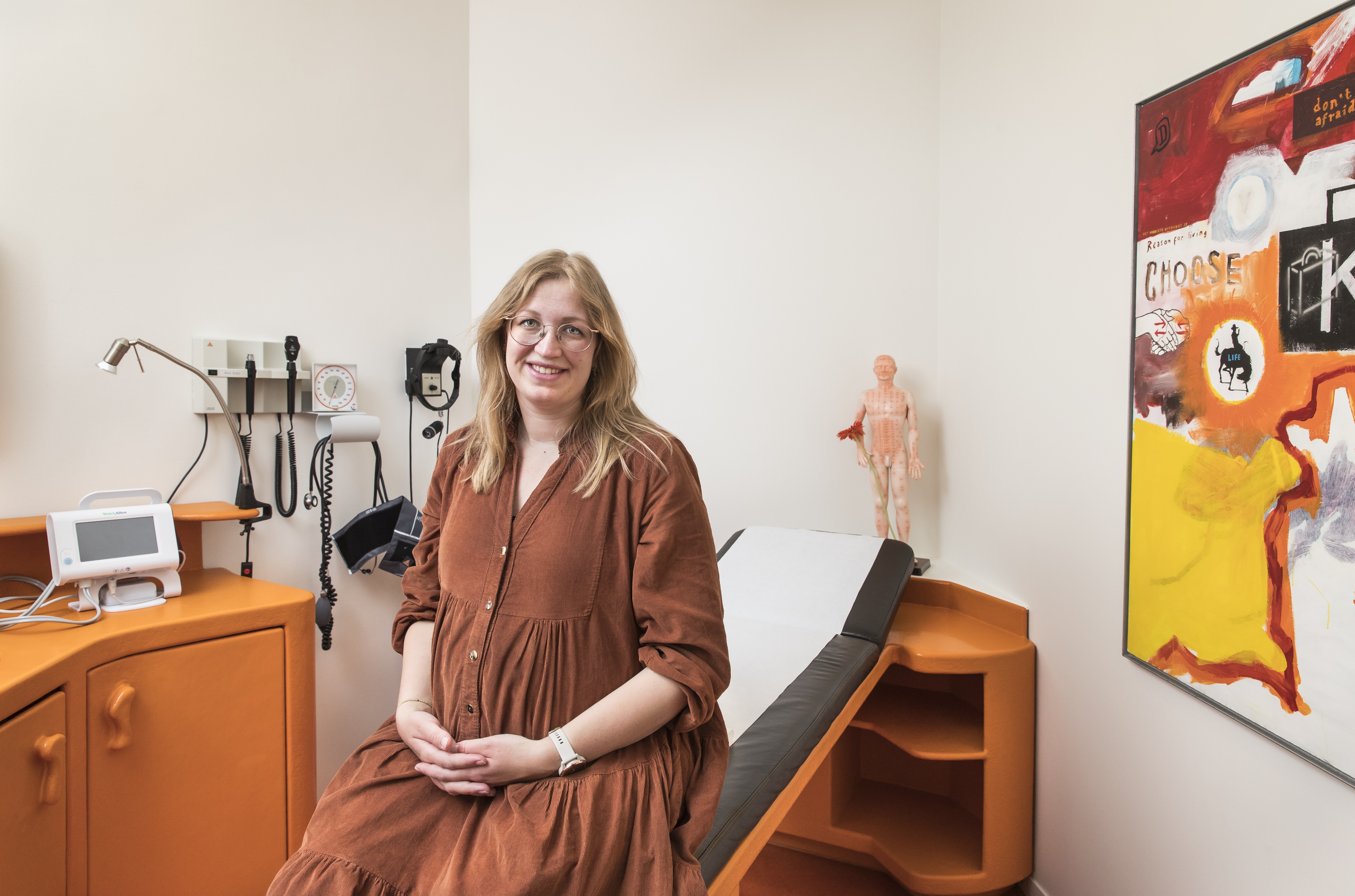
Moniek Wouda (1991) studied medicine in Maastricht. She spent a year working at the emergency room in Weert and almost two years as a Skills Lab teacher before starting the GP training programme in Maastricht, where she is currently in her third year. She has also been working in a general practice in Margraten since June 2021.
Solutions
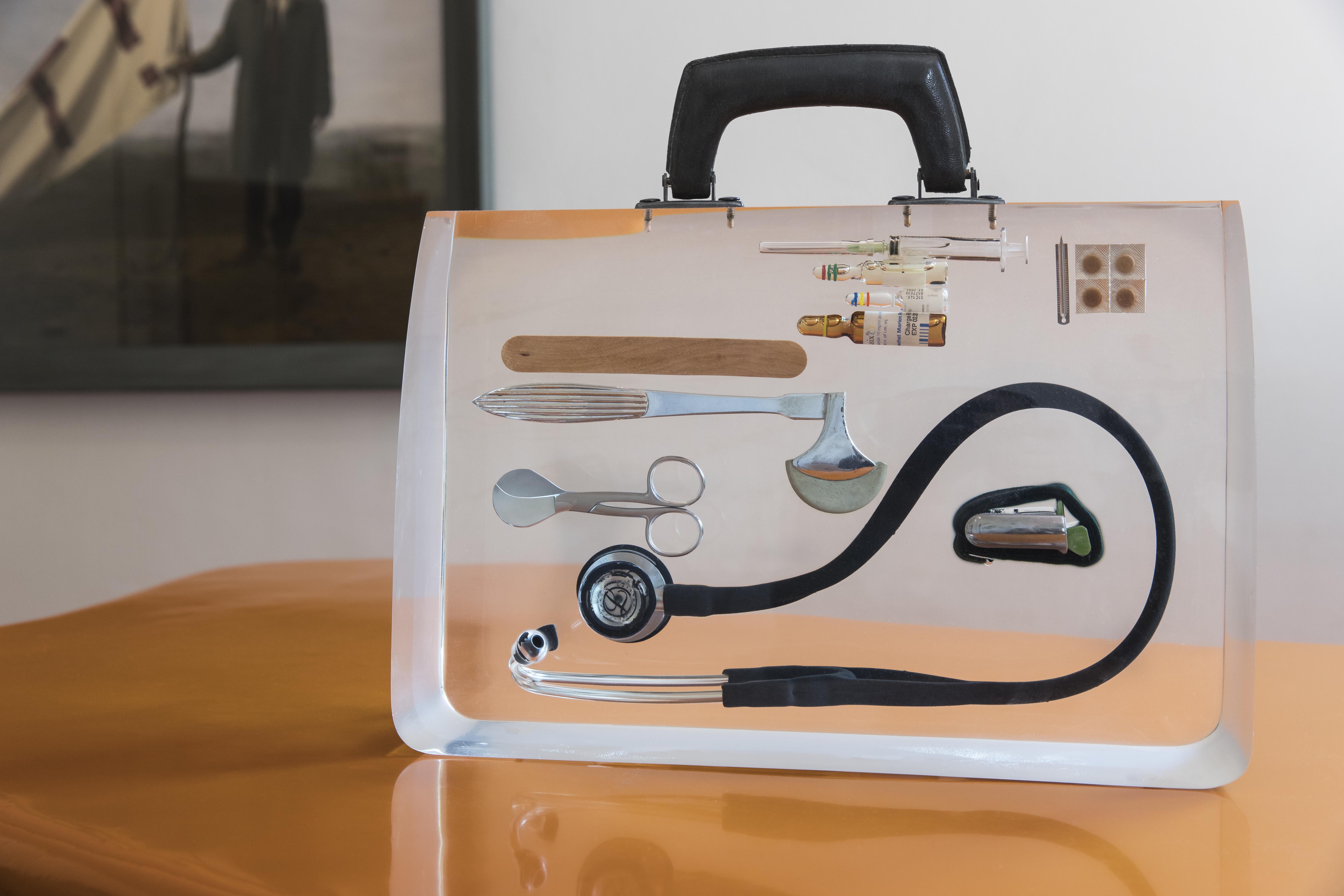
Clearly the shortage of GPs is a thorny problem. “And there’s no quick fix,” Limpens says. “Many parties will need to be involved in the solution.” The provision of care online—eHealth—could contribute to efficiency gains. But it’s not a holy grail, Limpens and Wouda warn. “Having patients make a heart film at home or take their own blood pressure has its advantages,” says Wouda. “But let’s hope video calling is not the future. How can you provide good care without physically seeing the patient?”
Something similar is happening with initiatives such as Co-Med, a commercial party that buys up and staffs practices with self-employed workers or salaried doctors who are available only part time or temporarily. “Much of the simple care can be delivered this way, even via video connection,” Limpens explains. “But it makes it harder to build a relationship with the patient. And that's exactly what you need when it comes right down to it; when you’re guiding a patient in the last phase of life, or someone who’s reaching breaking point with their illness. That’s the core of our profession.”
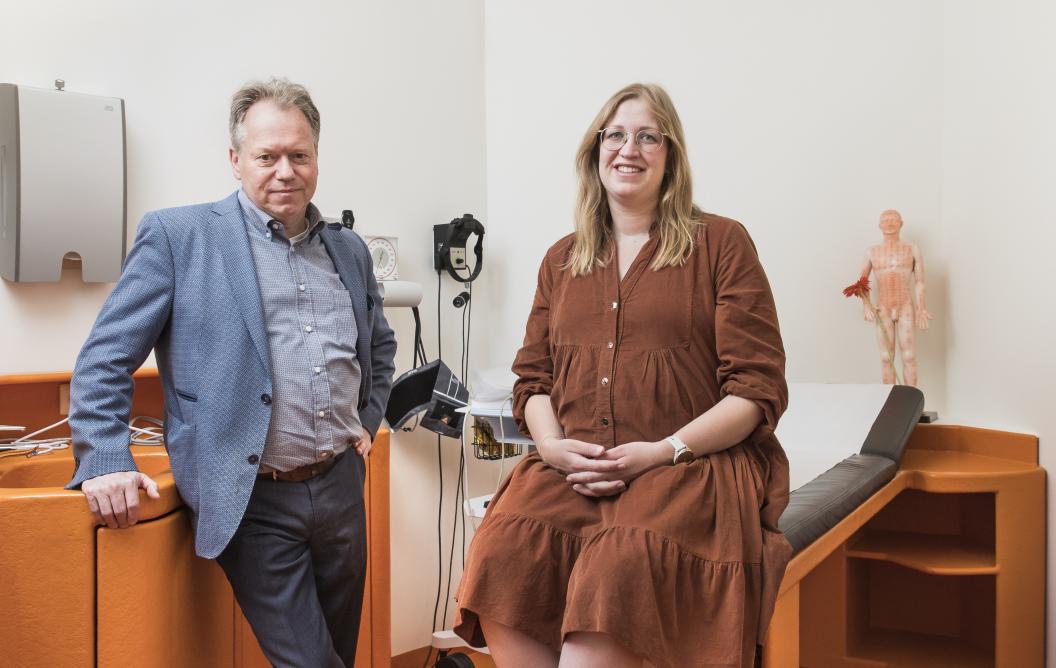
Wouda, one of the GPs who will soon jump into the gaping hole left by her retired predecessors, admits that she occasionally worries about the future. “Also because you sometimes hear from GPs about the high workload. That can be difficult, because they’re the ones who are supposed to spark our enthusiasm. Not that I have any doubts. I’d like to guide people in their lives, to get to know the families and problems within a community. A proper village doctor, so to speak, eventually with a joint practice.” Limpens: “The people we train have consciously chosen this profession and are fully committed to it. There’s a large group of young professionals who are keen to work on solutions.”
Text Jolien Linssen
Photography Paul van der Veer
Also read
-
Berta Cillero Pastor is an Associate Professor and group leader at the MERLN Institute for Technology-Inspired Regenerative Medicine. Her research is centred around mass spectrometry (imaging) to gain insights into molecules in cells and tissues for biomedical research. With this technique, changes...
-
On February 8, 2024, Ziemons received her PhD from Maastricht University for the dissertation “The role of the gut microbiota in human cancer, the power of an equilibrium". This dissertation is the result of Ziemons' research on the role of the microbiota in cancer – colorectal cancer but also...
-
Last November, Rory Koenen delivered his inaugural lecture following his appointment as a professor in 2023 at the research institute CARIM. The chair he holds is "Biochemistry of Vascular Inflammation and Thrombosis," and Rory's research can be best described as the quest to understand the role of...
